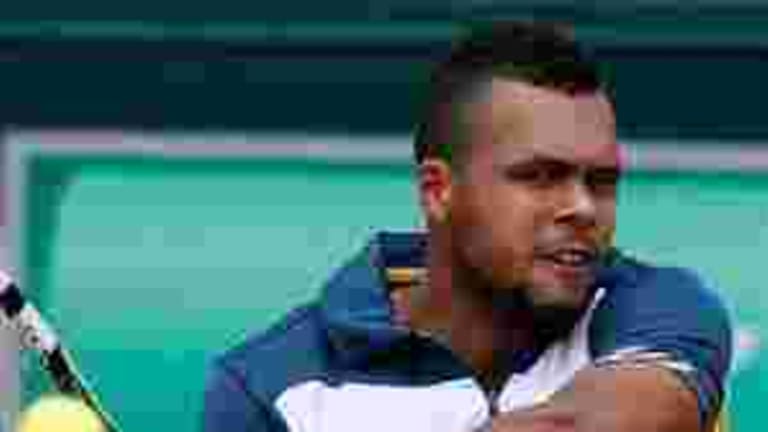“After this, as I usually say, it’s very strange, but here (Roland Garros) it’s magic. It’s magic. It’s a place where I feel really good, and, yeah, I can go beyond myself and play a type of tennis I wouldn’t even think of. Even today before the match, how people told me, ‘You are going to play four hours with such a score,’ I wouldn’t have believed it. So there is magic to some extent.”—Gael Monfils, after his five-set win over Tomas Berdych on Court Philippe Chatrier yesterday.
PARIS—A few days ago, I wrote a post about the struggles the French men chronically face playing in their home Grand Slam. Is it possible that the snakebitten French will break out of their (roughly) quarter-century slump and, in one glorious burst, satisfy their countrymen with something like an all-Gallic final (Tsonga vs. Gasquet, anyone?)?
Okay, let’s not get carried away here. Just getting a man to the final would be a monumental accomplishment; producing a winner could trigger a surge so powerful that it leaves Spain in France’s shadow, for the French already have a formidable fleet of elite players—but no Moses to lead them out of the ATP 250 wilderness.
These aren’t idle speculations, on yesterday’s evidence. The French men had one of their best opening-round days in years: They went eight for 11, the dirty half-dozen all coming through. Monfils, Jo-Wilfried Tsonga, Richard Gasquet, Gilles Simon, Julien Benneteau, and Michael Llodra lost a grand total of just six sets—four of those by Simon and Monfils, each of whom won a five-set encounter. And most important, France’s Grande Trois—No. 6 seed Tsonga, No. 7 seed Gasquet, and wild card Monfils—were impressive. The two seeds won in straight sets, while Monfils, whose ranking fell to No. 109 while he was forced to the sidelines with injury—was inspired to notch up a magical but well-earned inspired upset of No. 5 seed Tomas Berdych.
Let’s take a look at what lies ahead for these guys, starting with the big dog, Tsonga, who like Roger Federer benefited from No. 4 seed David Ferrer landing in the lower half. That means Tsonga could make the final without facing top-seeded Novak Djokovic or seven-time champion Rafael Nadal—and would (potentially) have to meet only one of them to win the tournament.
